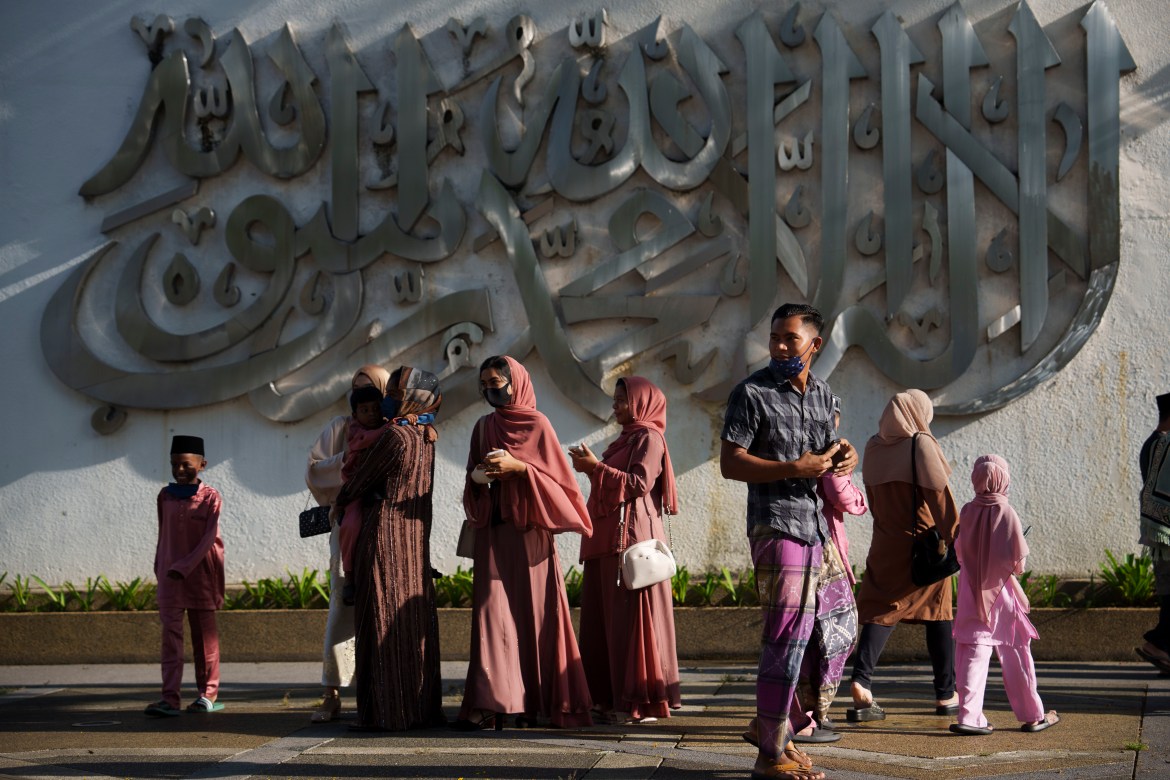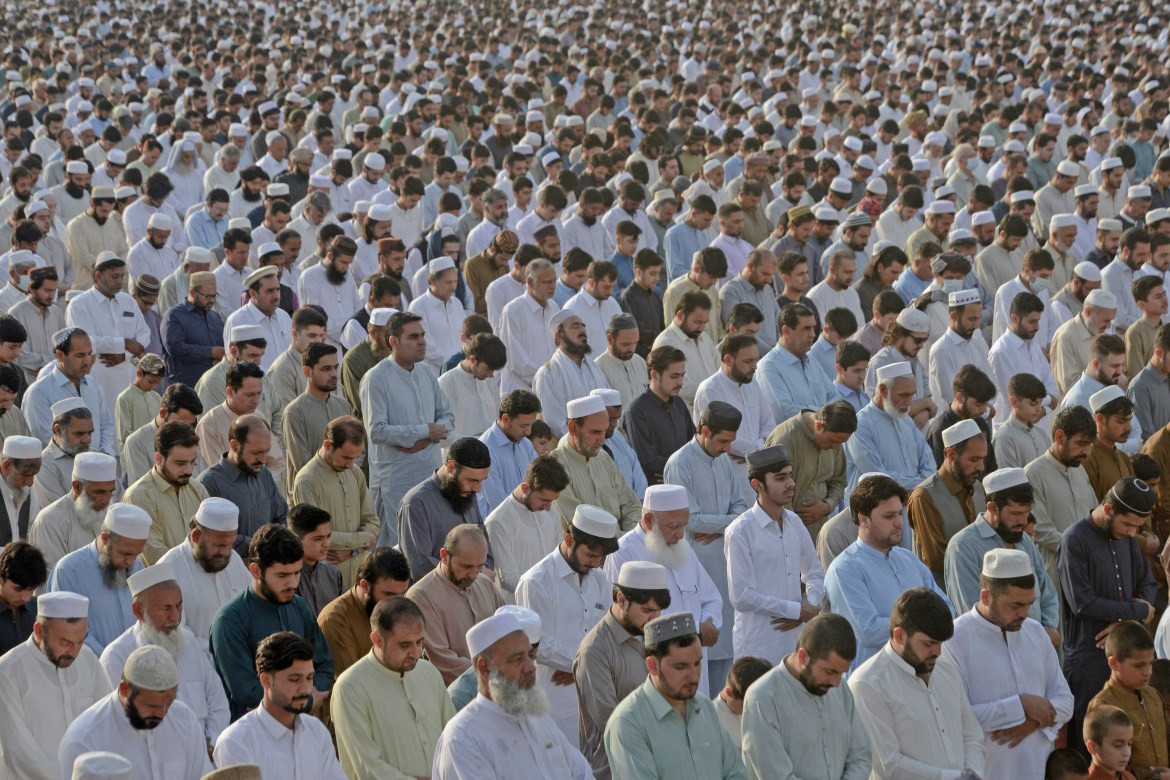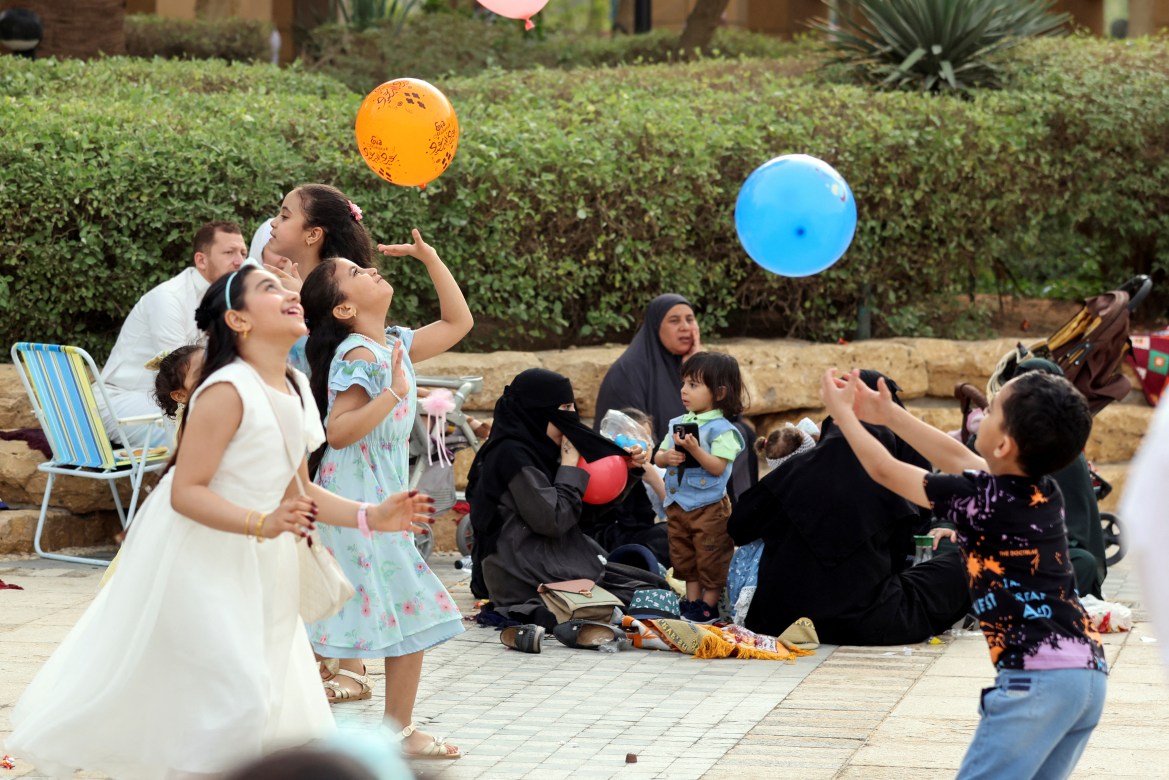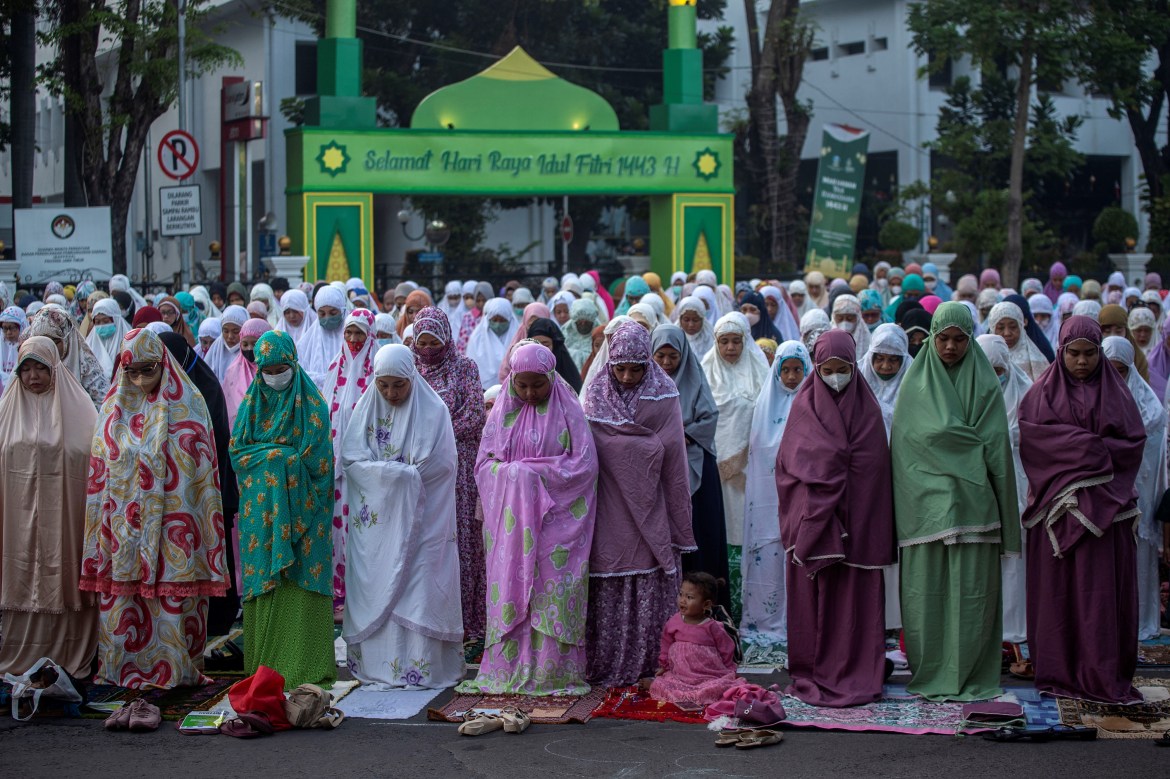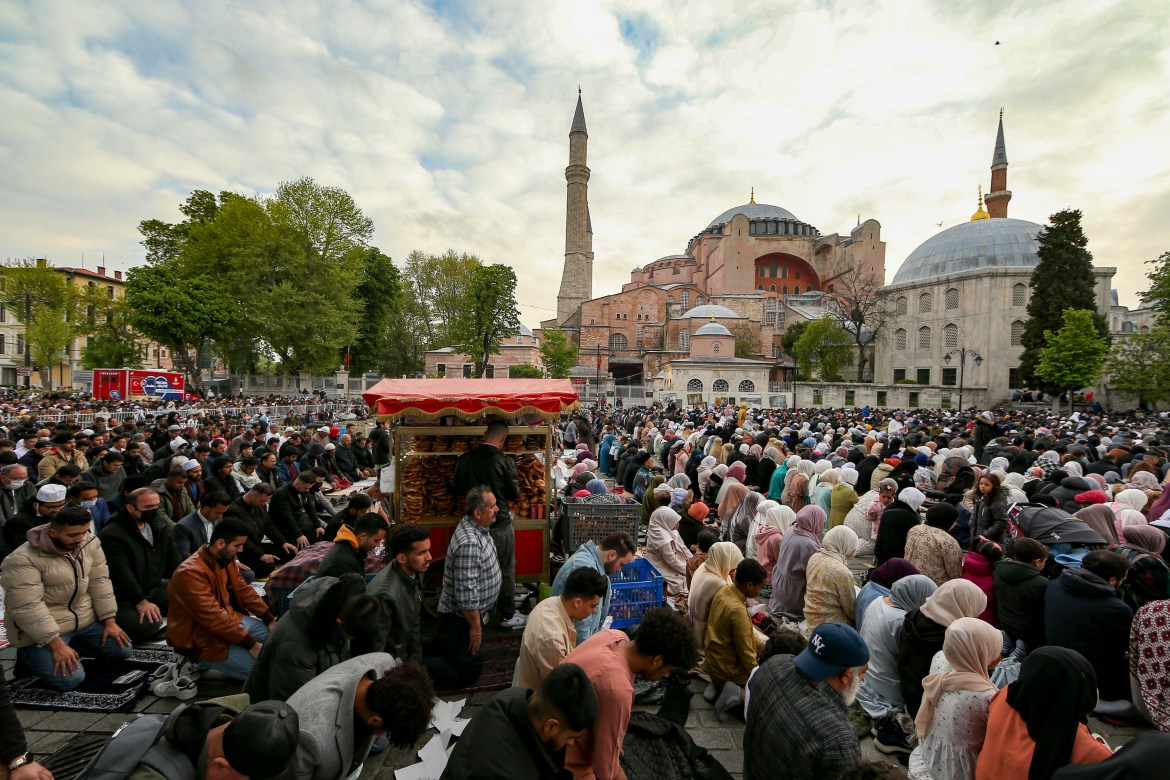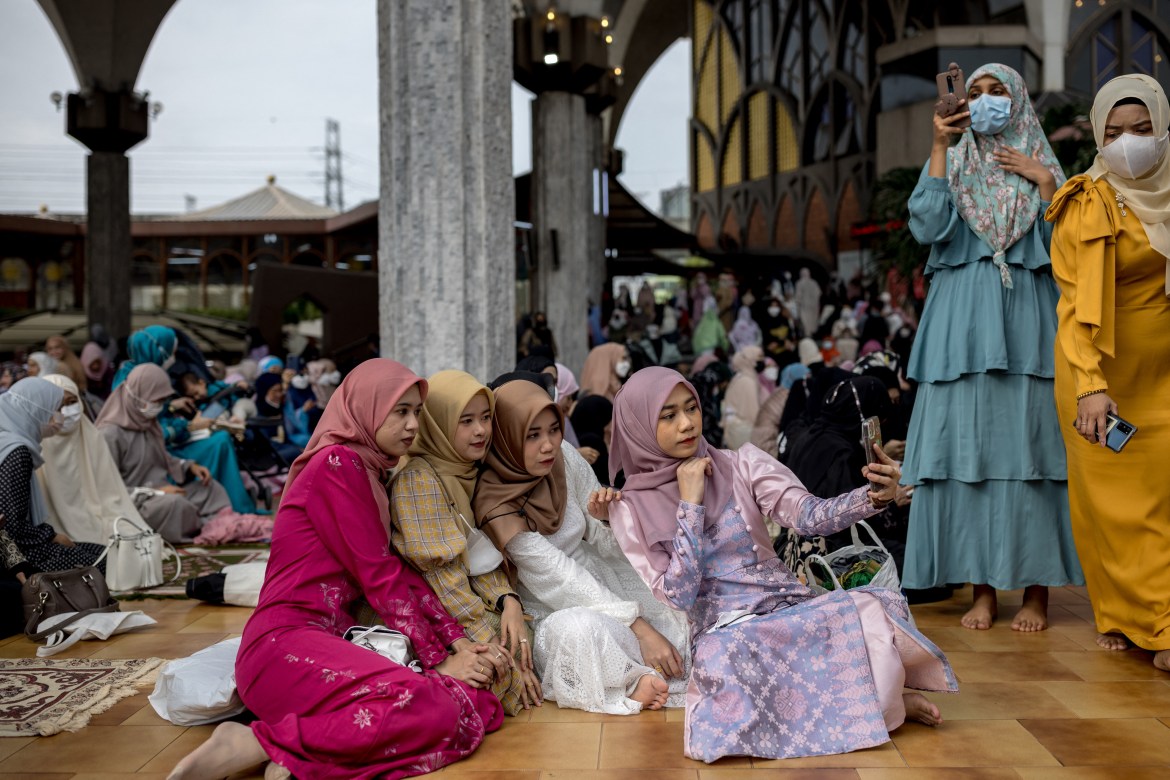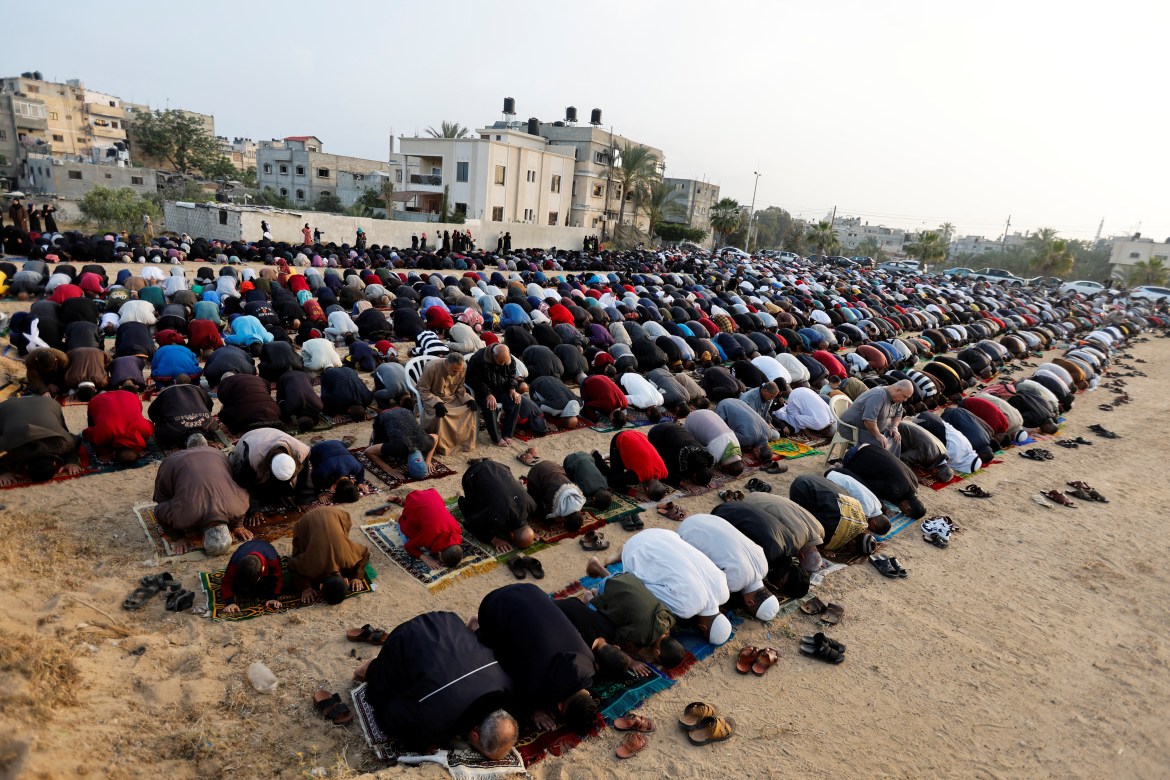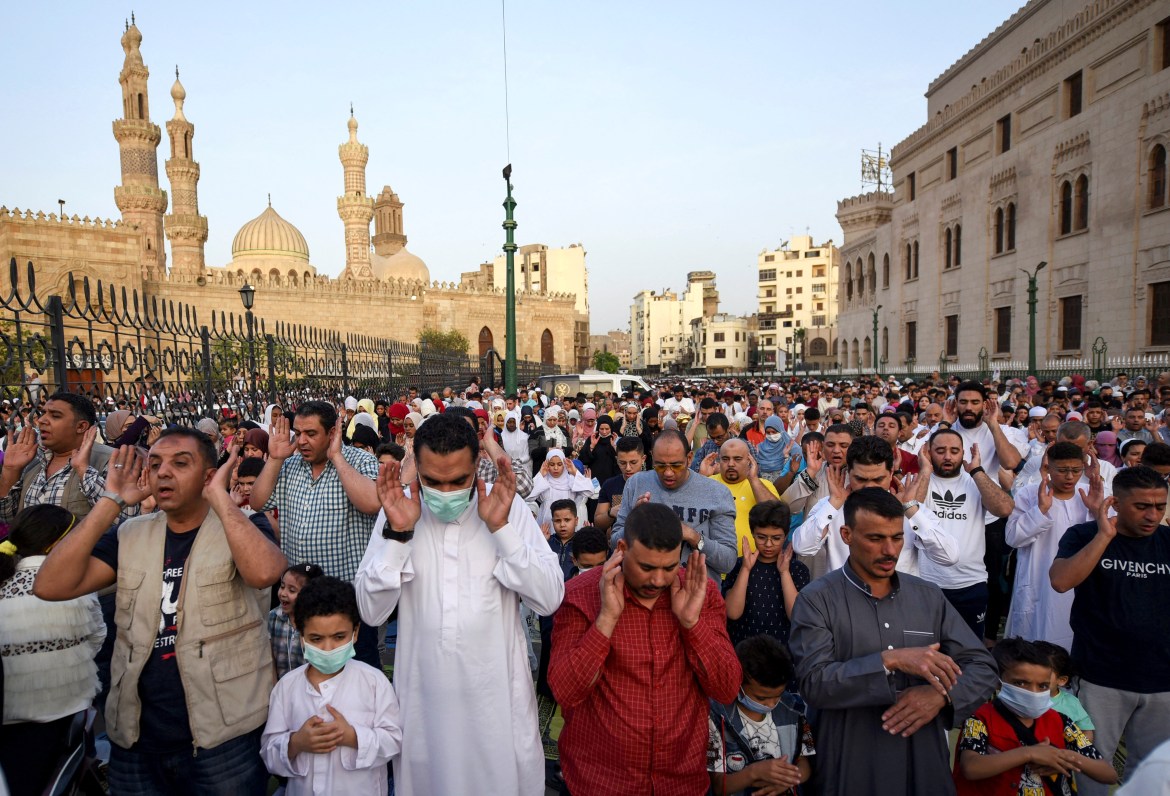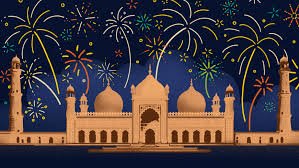Eid al-Fitr means ‘festival of breaking the fast’ and marks the end of the holy month of Ramadan.
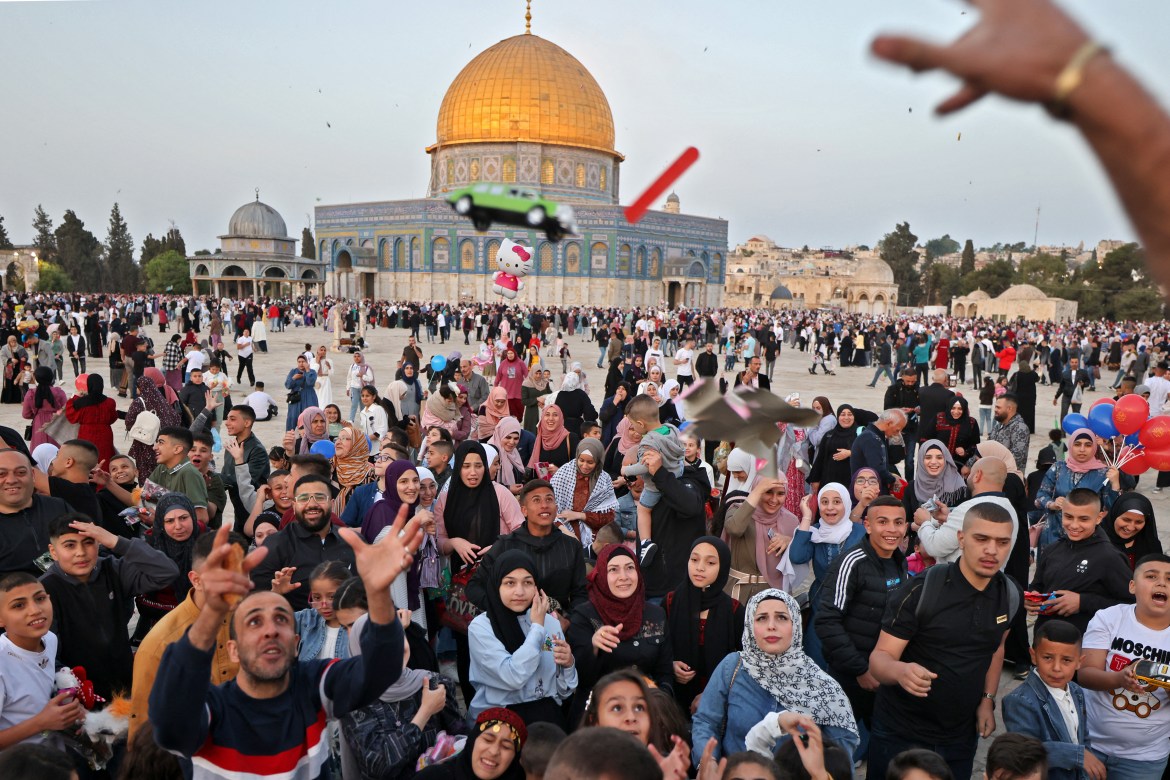
Muslims around the world are celebrating the three-day Eid al-Fitr festival, which marks the end of the fasting month of Ramadan.
Eid al-Fitr, or “the festival of breaking the fast”, begins with the first sighting of the new moon, and it often varies from country to country.
Celebrations begin with a special early morning prayer in mosques and open-air spaces and later move on to feasts and festivals.
This year, Eid al-Fitr comes amid a surge in global food prices exacerbated by the war in Ukraine. Against that backdrop, many Muslims are still determined to enjoy the holiday and the easing of coronavirus restrictions in their countries.
But for others, the festivities are marred by conflict and economic hardship.
At the largest mosque in Southeast Asia, tens of thousands of Muslims attended prayers on Monday morning at the Istiqlal Grand Mosque in Indonesia’s capital, Jakarta. It was shuttered when Islam’s holiest period coincided with the start of the coronavirus pandemic in 2020, and was closed to communal prayers last year.
